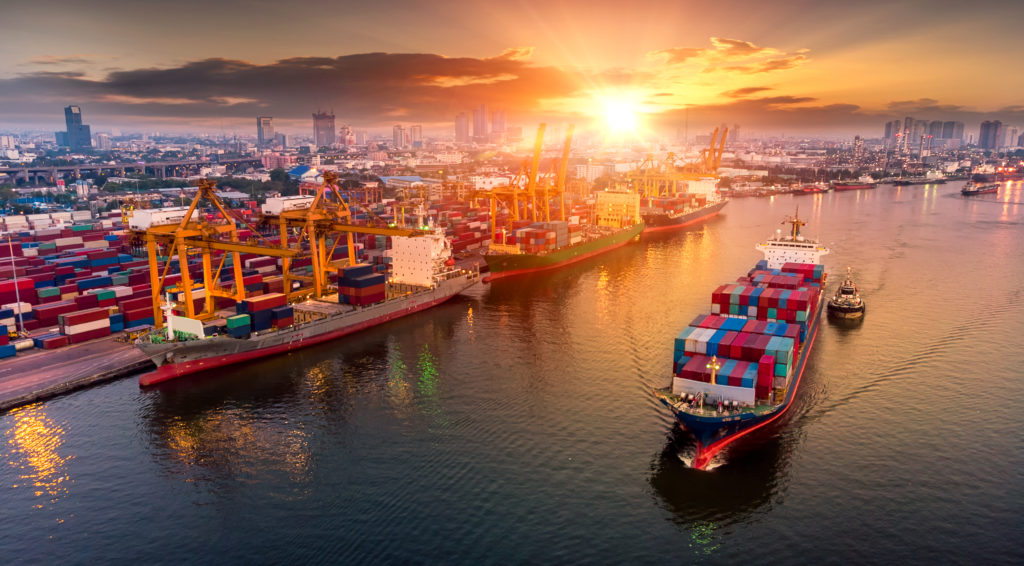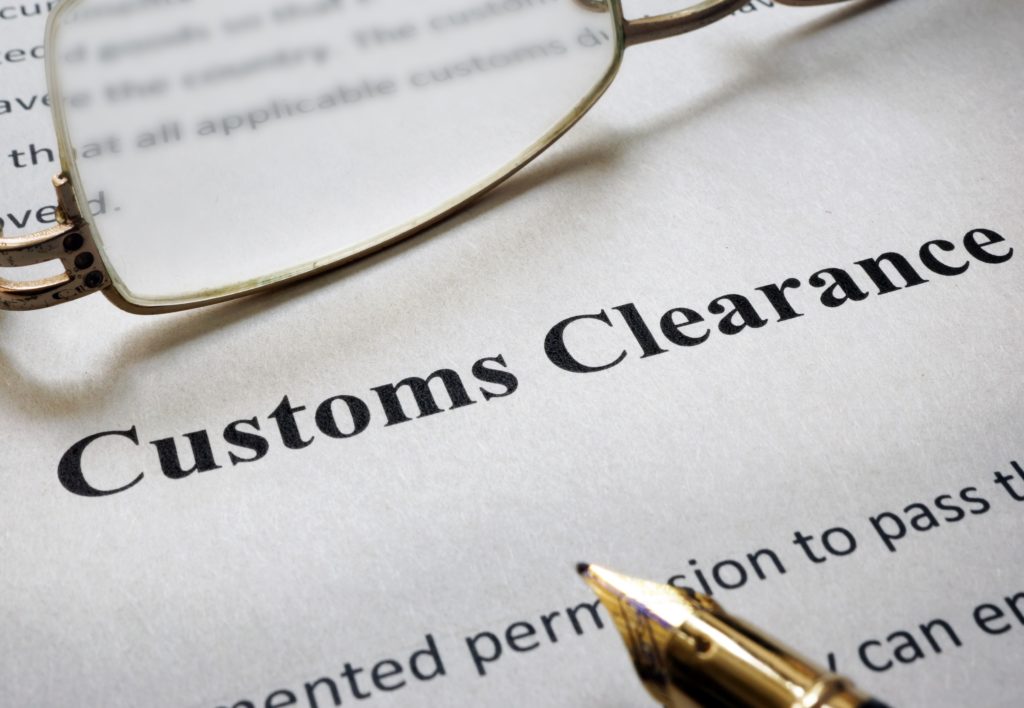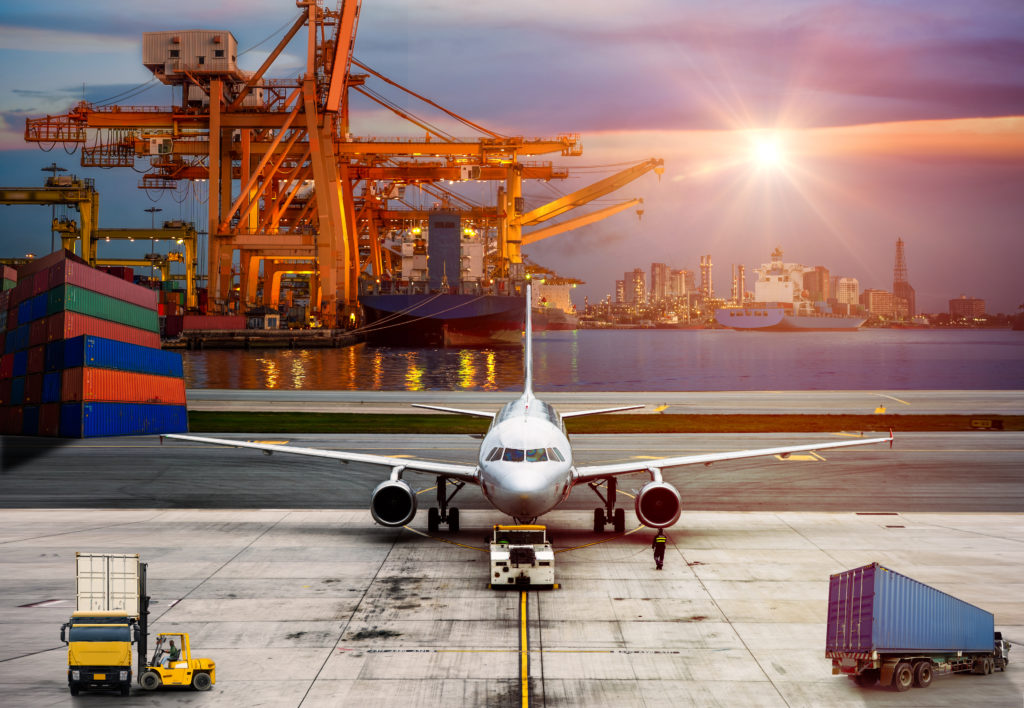Foreign Trade Zone and AD/CVD
Foreign Trade Zone and Trade Remedy Duties
Foreign Trade Zones and AD/CVD
The Foreign Trade Zone procedures shall not be used to circumvent AD/CVD orders. Items subject to AD/CVD orders will only be admitted to the zone in privileged foreign status. When these items are entered into the Customs territory for consumption, the items shall be subject to AD/CVD procedures as appropriate.
The Harmonized Tariff Schedule of the United States (HTSUS) duty rates are established for privileged foreign status merchandise based on the date of admission to the zone. However, the rates of antidumping or countervailing duties to be deposited are those in effect at the time of entry of the merchandise into the commerce of the United States.
Upon entry for consumption such items shall be subject to bonding or cash deposit requirements under the AD/CVD order or the suspension of liquidation, as appropriate.
An AD/CVD investigation or order may be initiated on merchandise that has been previously admitted to a zone in nonprivileged foreign status. When this merchandise is entered for consumption, a determination is made as to whether the merchandise is within the scope of an AD/CDV investigation or order.
In-Depth Coverage: Country of Origin
- Country of Origin of Imported Merchandise
- Customs Ruling: Country of Origin
- Country of Origin: Food Products
- Country of Origin: Chemical and Pharmaceutical Products
- Country of Origin & Country of Manufacture: CBP vs. FDA
- Country of Origin: Substantial Transformation or Country of Assembly Test
- Country of Origin and Free Trade Agreement
- Country of Origin and Section 301
Privileged Foreign Status
Foreign Status Merchandise is imported merchandise that has not been properly released from CBP custody in the Customs territory. Domestically-produced merchandise which has been exported and re-imported into the United States, but not properly released from CBP custody prior to entry, is foreign merchandise.
An importer usually chooses privileged foreign status when the rate of duty on a product manufactured in a zone is higher than the rate of duty on some or all of the components as introduced into the zone. As a privileged foreign status, the merchandise will be treated, for tariff purposes, in its condition at the time of admission to the zone, although the choice of that status need not be exercised at the time of admission. The election of privileged foreign status may be made after merchandise has been admitted to the zone provided that the merchandise has not been manufactured or manipulated in any way which may have effected a change in tariff classification.
Nonprivileged Foreign Status
While privileged foreign merchandise will be treated, for tariff purposes, in its condition at the time of admission to the zone, nonprivileged foreign merchandise is appraised and classified in its condition at the time of transfer into customs territory for consumption or for CBP bonded warehousing. As a result, nonprivileged foreign merchandise is dutiable at the rate applicable at the time of its constructive transfer from the zone into customs territory. Waste recovered from privileged foreign merchandise is assigned nonprivileged foreign status. Domestic merchandise, which has lost its identity, will be assigned nonprivileged foreign status. Nonprivileged foreign status may be changed to privileged foreign prior to manipulation or manufacture.
In-Depth Coverage: Cosmetics Import Requirements
In-Depth Coverage: Importing Medical Device
In-Depth Coverage: Importing Food Products
- What is FDA Food Safety Modernization Act (FSMA)?
- Prior Notice of Imported Foods
- FDA Food Facility Registration
- Risk-Based Preventive Controls for Human Food
- Risk-Based Preventive Control for Animal Food
- Protect Food against Intentional Adulteration
- What is Foreign Supplier Verification Program (FSVP)?
- What is FSMA Produce Safety Rule?
Customs Clearance and Import Requirements
- Entry of Imported Merchandise
- What is Section 321 Entry?
- What is Automated Commercial Environment (ACE)
- What is an Automated Broker Interface (ABI)?
- Who is Ultimate Consignee?
- What is Non-Resident Importer Program?
- Country of Origin of Imported Merchandise
- What is the Country of Assembly?
- What is the FDA's Country of Manufacture?
- Marking of Country of Origin on U.S. Imports
- What is Customs Bond?
- Reconciliation Prototype and Bond Rider
- Who Needs a Customs Broker?
- What is Customs Ruling Program?
- Classification of Imported Goods
- How is imported merchandise appraised?
- What are Import Quotas?
- What are Trade Remedy Duties?
- Antidumping Duty (AD) and Countervailing Duty (CVD)
- What is Foreign Trade Zone (FTZ)?
- What is Importer Security Filing (ISF)?
- What is Temporary Importation under Bond (TIB)
- What is In-Bond Process?
In-Depth Coverage: Marketing and Advertising Compliance
- Federal Trade Commission (FTC) Advertising Rules
- Made in USA Standard
- FTC Regulation on Environmental Claims
- Adverting and Marketing on the Internet
- Label Claims for Conventional Foods and Dietary Supplements
- Dietary Supplement Advertising: What is FTC's Truth-in-Advertising Law?
- USDA Country of Origin Labeling (COOL)
- FTC Rules & Regulations on Food Advertisement
Quick Link To U.S. Customs & Import Requirements
FDA-Regulated Products and Import Requirements
- What is Food Safety Modernization Act (FSMA)?
- Prior Notice of Imported Foods
- Food Facility Registration
- Risk-Based Preventive Controls for Human Food
- Risk-Based Preventive Control for Animal Food
- Standards for the Growing, Harvesting, Packing, and Holding of Produce for Human Consumption
- What is Foreign Supplier Verification Program (FSVP)?
- Protect Food against Intentional Adulteration
- Entry Review Process for FDA Regulated Products
- Country of Origin VS Country of Manufacture
- Foods Regulated by FDA or USDA: What is the Difference?
- Label and Labeling Claims for Conventional Food and Dietary Supplements
- What is USDA Country of Origin Labeling (COOL)?
- Import for Export of FDA Regulated Products
- FDA Regulated Products in Personal Baggage or Sending by Mail or Courier
- International Mail Facility (IMF) and FDA Regulation
- Importing Biological Product Regulated by CBER
- Importing Cosmetics and Voluntary Cosmetic Registration Program (VCRP)
- Importing Drugs into the U.S.
- Importing Tobacco Products into the U.S.
- Importing Medical Devices into the U.S
- Importing Food Products into he U.S.
- Importing Radiation-Emitting Products into the U.S.
Guidance on customs & logistics solution for traditional and e-commerce importers and exporters
Importer Security Filing (ISF)
An ISF is required when cargo (ocean only) laden on vessel at a foreign port is destined for shipment into the U.S. Under ISF rule, some details regarding cargo must be transmitted to the CBP at least 24 hours before goods are loaded onto the vessel, or at least 24 hours prior to the departure to the U.S.
Freight Forwarding
Looking for a freight forwarding partner? To move your cargo from its current location through customs to its final destination we will partner with you to find the best way for your business. Whatever your transportation, logistics or customs clearance needs, we will do our best to customize a solution for your needs.
Customs Clearance
The goods imported into the U.S. are required to be declared to CBP. Our customs broker will help you stay in compliance with customs laws and regulations and clear your goods quickly and efficiently with our electronic Automated Commercial Environment (ACE) and Automated Broker Interface (ABI) Single Window System
Warehousing & Distribution
Our warehouse facility offers great potential for serving as a regional hub with over 145,000 SF storage capacity close to Los Angeles Airport & Los Angeles/Long Beach Sea port. With our extensive experience in freight services, your import/export cargo will be handled quickly and effectively.
Non-resident Importer Program
If you want to sell your products in U.S. marketplaces, but you are a business owner located outside of the U.S. and do not have an entity or presence in the U.S., you need to be established as a Foreign Importer of Record before your products can be imported into the U.S. We can help you.
Section 321 Entry
Section 321 entry allows importing free of duty and tax for shipments imported by one person on one day having a fair retail value in the country of shipment not more than $800. We provide our resident and non-resident clients with dedicated ACE eManifest solutions for Section 321 entry of all modes of transportation.
E-Commerce
The Internet has made it easy to find and purchase items from almost anywhere in the world. Our e-commerce experts will help you find the right solution for your international transportation, customs clearance, and delivery to your final destination. We also provide value-added repackaging, warehousing and distribution services.



















